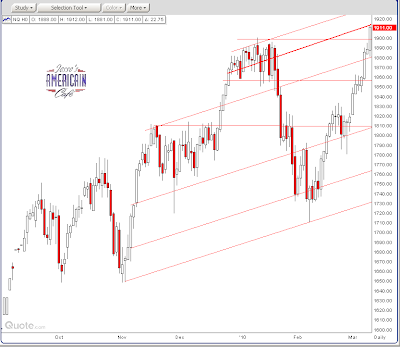As I recall when Blanchard sued Barrick and JPM for manipulating the gold market one of the first motions to dismiss came from Barrick who claimed that they were acting at the behest of the government and the central banks.
I believe the law firm representing this was the one who was successful in the Sumitomo copper litigation.
Reuters
JPM and HSBC Sued for Alleged Silver Market Manipulation
By Jonathan Stempel
NEW YORK, Oct 27 (Reuters) - JPMorgan Chase & Co (JPM.N) and HSBC Holdings Plc (HSBA.L) were hit with two lawsuits on Wednesday by investors who accused them of conspiring to drive down silver prices, and reaping an estimated hundreds of millions of dollars of illegal profits.
The banks, among the world's largest, were accused of manipulating the market for COMEX silver futures and options contracts from the first half of 2008 by amassing huge short positions in silver futures contracts that are designed to profit when prices fall.
"Defendants reaped hundreds of millions of dollars, if not billions of dollars in profits" from the conspiracy, one of the complaints said.
The respective plaintiffs, Brian Beatty and Peter Laskaris, each said they traded COMEX silver futures and options and contracts, and lost money because of the alleged manipulation.
Beatty lives in Connecticut and Laskaris in New York, court records showed. The lawsuits seek class-action status, damages that may be tripled and other remedies. The defendant banks are major participants in the silver market.
JPMorgan declined to comment. An HSBC spokeswoman had no immediate comment.
The lawsuits were filed one day after the Commodity Futures Trading Commission proposed regulations to give it greater power to thwart traders who try to manipulate prices.
The CFTC began probing allegations of silver price manipulation in September 2008.
"Going back to the early 1980s, silver has been an extremely volatile market," said Bill O'Neill, managing partner at Logic Advisors, an Upper Saddle River, New Jersey investment firm specializing in commodities. "I often describe it as a speculative playground. You have to be a big boy to play."
FRAUD, DEVIOUSNESS ALLEGED
Only once in its 36-year history has the CFTC successfully concluded a manipulation prosecution, in a 1998 proceeding concerning prices for electricity futures.
Speaking on Tuesday, Chairman Gary Gensler said the proposed regulations would give the regulator greater power to police "fraud-based manipulation."
Commissioner Bart Chilton added that there had been "fraudulent efforts to persuade and deviously control" silver prices.
A CFTC spokesman said the regulator does not comment on investigations, and would not discuss the investor lawsuits.
Earlier this year, the CFTC began looking into allegations by a London trader that JPMorgan was involved in manipulative silver trading, the Wall Street Journal said on Wednesday, citing a person close to the situation.
Silver prices have faced regulatory scrutiny in the past, perhaps most prominently after the Hunt brothers in Texas in 1980 attempted to corner the market, driving prices above $50 an ounce. The price later plunged.
Since the CFTC began its probe, spot silver prices XAG= have ranged between $8.42 and $24.90 an ounce, Reuters data show. They traded Wednesday at roughly $23.53. Silver futures prices SIc1 are up 39.1 percent this year.








































